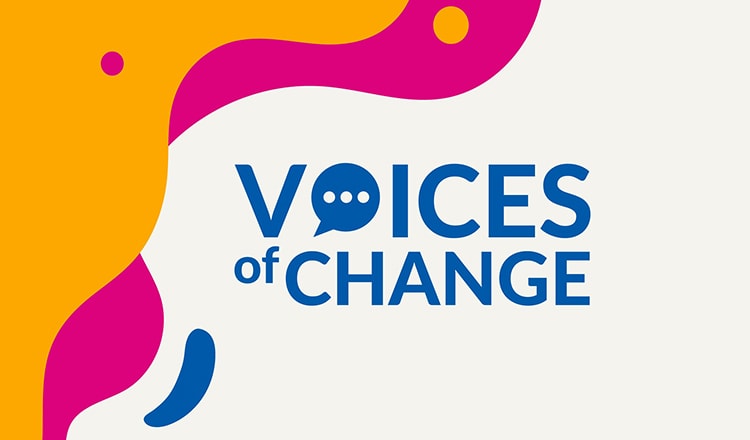I had a natural affinity with leadership from a young age. But the friction this created in my childhood friendships made me resent it. As a result, I turned my back on being a leader and picked the path of least resistance—blending in to my surroundings and refusing to put my head above the parapet.
However, leadership was always destined to return to my life. I was raised in Armenia by respected parents—a mother with two higher educational qualifications and a father with four. Naturally, I sought to emulate the high standards they set and their hard-working mentality.
This dedicated approach made me a high achiever at school, winning many contests and competitions. I took on challenges with my friends, and supported family members. Leading people, spearheading projects, and solving problems came naturally.
Learning leadership the hard way
But my success didn’t come without pitfalls. My best friend at school became jealous of my achievements. She didn’t like the credit and praise I received for my work. So, she tried to turn the class against me.
This was a difficult period for me. Despite the upset I felt, I never showed my pain at school. I saved my tears for when I was alone. But I couldn’t understand what I’d done wrong.
I was a responsible student, a faithful friend, and an active class member. So, why were my friends deserting me? There are no prizes for guessing what a 13-year-old girl did in that situation. Yes, I decided not to be noticeable anymore. I promised myself that I’d stay away from future leadership roles. I lived this way for years—in the shadows, nursing my wounds of the past, fearing the story would repeat. This continued until I became a member of a progressive youth organization renowned across the world.
Despite committing to learn quietly in the corner and then leave, I found myself beginning to initiate projects and optimizing processes. I was leading people and teams subconsciously, yet still refusing to acknowledge any leadership role. And this experience provided the realization of what leadership really was. It’s not something you strive for; it’s a consequence of the responsibility you take; a tool that enables you to turn your ideas and beliefs into a reality.
© Tatevik Oganesyan
How do you become a leader?
I believe good leaders are born when there are problems to solve. In physics, the reaction is defined as a response to the action. Similarly, good leadership is a positive reaction to the problem in the system. The bigger the problem, the better the leader required. And the better the leader, the bigger the leadership energy unleashed.
Take Shavarsh Karapetyan, for example. He was a world-record-breaking Armenian “fin-swimmer” (swimming with the aid of fins) who was out running with his brother when he witnessed a trolleybus that had lost control sinking in Yerevan Lake.
Without hesitation, Karapetyan swam to the submerged vehicle and—despite minimal visibility—dived deep into the water to bring the passengers to the surface. Karapetyan rescued 46 people, 20 of whom survived. As a result of his actions, he lay unconscious in hospital for 45 days, and subsequent lung complications ended his career as a competitive swimmer.
Of course, Karapetyan was not out looking for the leadership that saved so many. Neither was he thinking about the admiration such heroism would attract. He just knew—instinctively—it was something he had to take responsibility for. But where does such an act of responsibility come from? Essentially, it’s the attitude we embody when we take events and adversities personally. Remember the expression “nothing personal, just business”? Forget about it. Our life is personal—whether at home or at work. Or out on a run with a sibling. Any company I have worked for, any position I’ve taken, any person I’ve met, any obstacle, any problem, any pain point … I have taken it all personally. And I will continue to.
Empowering collaboration toward shared goals
The first time I took a leadership role in the professional world, following my difficult experiences at school, I was assigned to lead a team of three ambitious newcomers.
The organization had no money, and we expected no recognition. We were powered solely by the belief in what we were doing.
I was not “leading” them because I was the smartest, or the strongest, or simply the best. It was because I believed in my leadership, and in my potential to be a valuable asset in reaching our global objectives.
Just one year later, all three of my mentees took management roles in the organization—with one becoming president.
None of us rose to these prominent positions because we were seeking power, kudos, or authority. The ability to take responsibility and solve problems are the core drivers for career progression. Leadership is just the consequence.
Do you want material gain or company progress?
So, before you accept a leadership position, ask yourself: Why am I doing this? Is it to prove your success to yourself, or others? Is it to brag about on LinkedIn? Or, is it because there’s a problem you’re eager and able to solve? And is it because you can take responsibility for those around you—for their lives, their growth, and their future?
If you can answer “yes” to the latter set of questions, go for it and let your inner values guide you. Leadership will fall organically under your responsibility—as a direct consequence of the actions you have taken.
Top photo posed by models. © Getty Images









